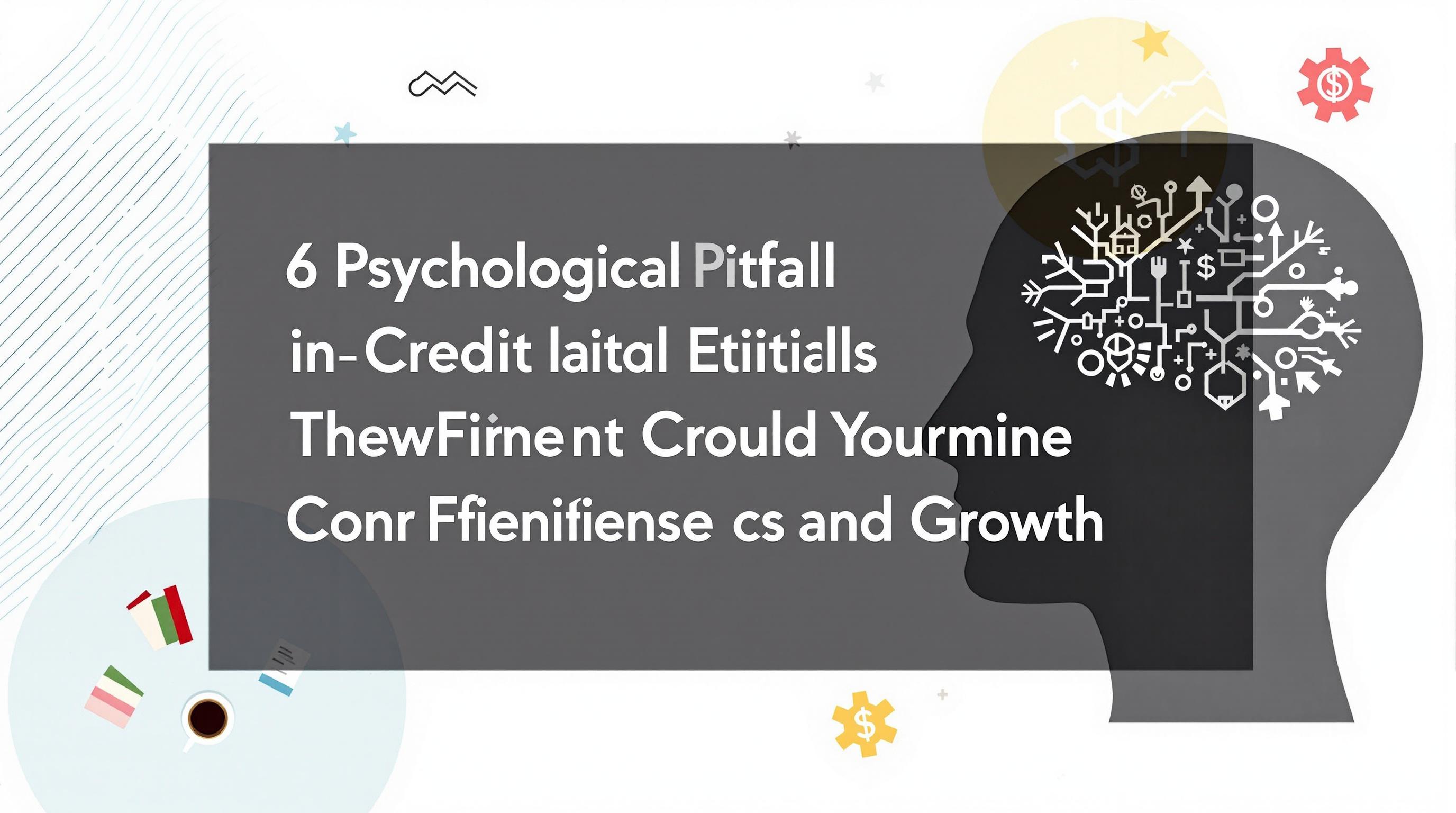Related Articles
- Top 6 Niche Credit Cards from the Past Five Years That Exploit Unseen Reward Loopholes
- Unmasking the Silent Influence of Social Media Challenges on Long-Term Financial Behavior and Credit Recovery
- How Microcredit Dynamics in Remote Communities Are Redefining Access and Trust Beyond Traditional Credit Metrics
- How Cultural Attitudes Shape Collective Borrowing Habits and Their Impact on Financial Unification Strategies
- Top 5 Under-the-Radar Digital Loan Services Launched Since 2019 That Are Disrupting Traditional Borrowing Norms
- Top 6 Cutting-Edge Financial Wellness Platforms Redefining Debt Recovery Tools Released Since 2019
How Overlooking Small Credit Habits Could Secretly Influence Your Long-Term Wealth Accumulation Strategies
How Overlooking Small Credit Habits Could Secretly Influence Your Long-Term Wealth Accumulation Strategies
Ignoring your daily credit habits might seem harmless, but these tiny financial choices can dramatically shape your long-term wealth accumulation. This article unpacks the subtle yet powerful ways small credit behaviors impact your financial future and offers strategies to harness them wisely.
The Domino Effect: How Small Credit Habits Compound Over Time
When people think about wealth accumulation, they often focus on large investments or high salaries. However, it’s the small, consistent credit decisions—like carrying a balance or missing a payment—that quietly erode financial potential. A 2019 study by Experian indicated that individuals with excellent credit scores save approximately 25% less on interest payments annually compared to those with fair or poor scores. Thus, what might seem like inconsequential habits can lead to significant cost differences over time.
Conversational Insight: The Latte Factor of Credit
Think of your credit habits like your morning latte purchase. While one latte might seem insignificant, it adds up. Similarly, using a credit card to cover a few dollars here and there without paying off the full balance can create a sneaky debt cycle. Sarah, a 28-year-old marketing assistant, recently shared how paying only the minimum on her credit card each month increased her debt by $5,000 over two years. “I never thought small balances would amount to such a big problem,” she admits. It’s a cautionary tale that underscores the power of small, regular habits.
Humorous Take: The Credit Card Monster Under Your Bed
Imagine your credit card as a sneaky little monster that hides under your bed, munching away at your future wealth while you sleep. You don’t see it, but every time you swipe and don’t pay off in full, it grows bigger. Soon, this monster is demanding higher interest payments, snarling at your ability to invest or save. The best way to tame this beast? Pay on time and in full. Otherwise, you’re feeding your monster nightly!
Case Study: Maria’s Journey from Reckless Credit to Robust Retirement
Maria, at age 45, reflected on her financial past during her first consultation with a financial advisor. Ten years earlier, she casually used multiple credit cards for convenience. Though she paid off the balances eventually, there were many months where she carried balances and incurred interest. By switching to a credit-conscious pattern—paying balances in full, using cards strategically, and monitoring her credit score—Maria saved thousands in interest and increased her monthly savings by reallocating those funds into retirement investments. This shift altered her retirement trajectory, illustrating how small tweaks in credit management can yield substantial wealth growth.
Formal Insight: The Interplay Between Credit Scores and Investment Opportunities
Credit behavior directly affects one’s credit score, which can influence the terms of borrowing and access to opportunities such as mortgages or business loans. According to the FICO credit scoring model, payment history constitutes approximately 35% of your score, making punctual credit payments critical. Individuals with higher credit scores typically secure loans with lower interest rates, effectively reducing their cost of capital and freeing up resources for investments or savings. Ignoring small credit habits can thus restrict an individual’s ability to engage in wealth-building opportunities.
Statistical Snapshot: Interest Rates and Wealth Drainers
Consider this—carrying a credit card balance with an average interest rate of 17% means you’re losing purchasing power aggressively over time. If you carry just a $3,000 balance and pay only the minimum monthly payment, it could take over 10 years to clear the debt, resulting in nearly $2,750 paid in interest alone (Source: NerdWallet). These numbers emphasize why seemingly minor credit habits are essential to monitor for long-term financial health.
Persuasive Argument: Why Paying on Time Should be Your Top Priority
If you want to grow your wealth, treat your credit habits like the foundation of a house. Timely payments keep your financial structure strong, whereas missed payments or accumulating debt can crack it. Developing excellent payment discipline not only boosts credit score but also unlocks better loan rates and opportunities. Therefore, investing effort into small, positive credit behaviors is a highly efficient way to bolster your long-term wealth.
Storytelling: Tom’s Wake-Up Call
Tom, a 35-year-old teacher, always thought that missing a payment here and there wasn’t a big deal. After all, “it only delayed things a little, right?” Wrong. When he finally applied for a mortgage, his credit score was lower than he realized—leading to a higher interest rate and increased monthly payments. His small oversight ended up costing him tens of thousands more across the life of the mortgage. After this wake-up call, Tom restructured his credit habits, emphasizing consistency and awareness, which improved his financial outlook.
Casual Chat: What Your Credit Card Statements Might Be Whispering
Ever glanced at your credit card bill and felt overwhelmed? That’s your credit whispering, telling you about missed potential savings and hidden costs. By keeping track of your routine spending and making payments in full, you’re effectively listening and responding, rather than ignoring. Your future self will thank you because those small whispers echo as significant wealth gains down the road.
Creative Analogy: Your Credit Habits as a Garden
Imagine your credit habits like tending to a garden. Neglecting small weeds (late payments, small balances, high utilization) allows them to take over, choking the healthy plants (your wealth-building efforts). But with daily attention—watering in the form of on-time payments and balance management—you cultivate a flourishing garden that grows beyond expectations. Gardening requires patience, much like managing credit; but both reward consistent nurturing with great yields.
Final Takeaway: Don’t Let Small Habits Dictate Your Wealth Destiny
The journey to financial security doesn’t hinge solely on massive investments or windfalls but is equally crafted by daily credit habits. These habits influence credit scores, borrowing costs, and ultimately your capacity to save and invest. By recognizing the hidden power of small credit behaviors and addressing them proactively, you can unlock a clearer, more prosperous path for wealth accumulation. Remember: your future wealth is quietly being shaped every time you look at your credit card statement.




